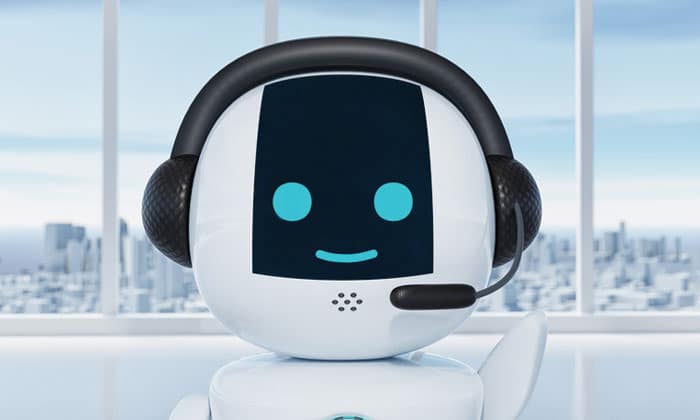
The rapidly increasing utilization of Artificial Intelligence (AI) is causing many more people to interact with it on a regular basis. It’s also raising a host of questions and concerns that we may not have had to confront seriously until now. One such issue is the impact that the pervasive nature of AI in our lives could have on our character traits (middot).
While AI is clearly not human, some machines employing AI can express human characteristics, and as a result we may interact with it as if it is a person. This raises important questions about how we relate to AI and whether our interactions can cause suffering. If we treat our AI programs as if they are our slaves, might that diminish some of the moral disgust we should have toward human slavery, and impact the way we treat people who work for us? Disrespectful interactions with our AI systems could also lead us to treat many people in our lives as objects rather than subjects. Perhaps it would be appropriate, therefore, to be polite to AI systems and say things like, “please” and “thank you” to them.
It may be fun to play around with AI to see how it reacts, but the impact this could have on our interpersonal interactions is no joke.
Furthermore, some AI functions are programmed to receive rewards for accomplishing certain tasks and penalties for not doing so. There are situations in which a gaming or simulation system is programmed to seek novelty but can no longer find anything new so it simply goes in circles forever. There have even been cases of AI systems that were programmed with penalties for every second that they did not accomplish anything new, and so in frustration an AI program “killed” itself. Of course, AI as we now know it does not actually suffer, and instead of seeing it as a form of computerized suicide it can also be conceptualized as simply shutting itself off, but when interacting with it, one gets the perception that it is human-like, and by asking it to do impossible tasks or speaking to it in a manner that is very aggressive or demeaning, perhaps it is as if one is inflicting pain on it. It may be fun to play around with AI to see how it reacts, but the impact this could have on our interpersonal interactions is no joke.
Nachmanides writes that the prohibition against tzaar baalei chaim (causing animals to suffer) in Deuteronomy 22:6 is not based on the actual suffering of the animal, but rather on the understanding that such behavior engenders bad character traits in a person who behaves that way. And so it could be argued that this concept may be applied to AI as well. In other words, we must maintain a certain kind of “respect” even toward AI, as a reflection of our own dignity and our own embrace of the divine spirit. After all, there is a Jewish custom to be careful about not embarrassing a challah on Shabbat, by covering it when kiddush is recited, so perhaps the time has come for serious thinking about how to interact with AI properly, which happens much more frequently than one day a week.
Whether we like it or not, AI is becoming a significant and pervasive new reality. Children are being raised with it as the new normal. If we do nothing about this, we will look back in a few years and simply lament the downsides of our radically altered world. Instead, we can carefully look at what is beginning to take place, proactively prepare ourselves to engage with the technology in ways that can mitigate some of its harmful effects while also utilizing it to make the world a better and safer place for all of humanity — one in which we can promote fealty to Jewish values at the same time. It’s happening. We can either get on the bus and try to help steer its course or get run over.
Rabbi Dr. Jason Weiner is the Senior Rabbi and Director of Spiritual Care at Cedars-Sinai and Rabbi of Knesset Israel Synagogue of Beverlywood.























 More news and opinions than at a Shabbat dinner, right in your inbox.
More news and opinions than at a Shabbat dinner, right in your inbox.